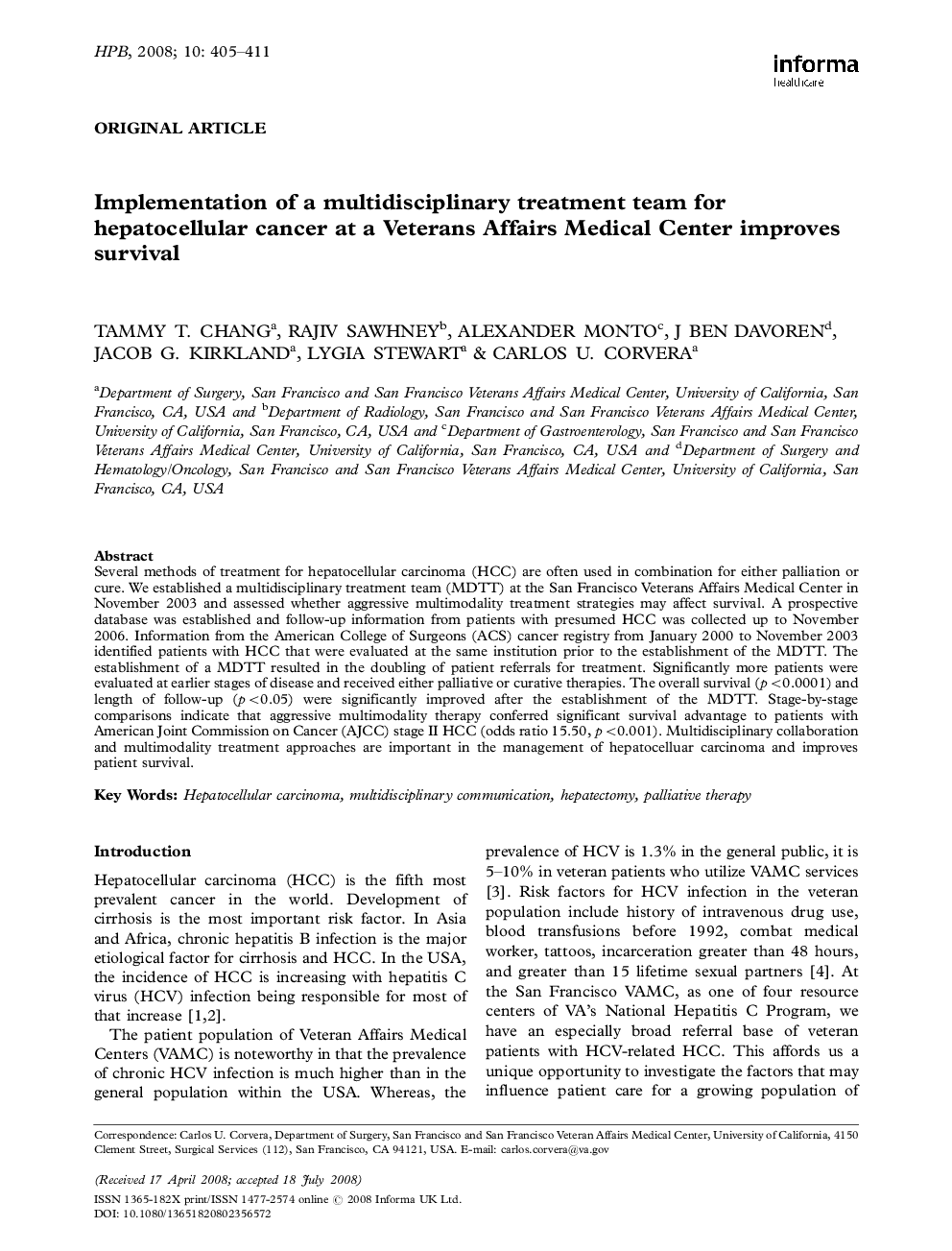| Article ID | Journal | Published Year | Pages | File Type |
|---|---|---|---|---|
| 3269881 | HPB | 2008 | 7 Pages |
Abstract
Several methods of treatment for hepatocellular carcinoma (HCC) are often used in combination for either palliation or cure. We established a multidisciplinary treatment team (MDTT) at the San Francisco Veterans Affairs Medical Center in November 2003 and assessed whether aggressive multimodality treatment strategies may affect survival. A prospective database was established and follow-up information from patients with presumed HCC was collected up to November 2006. Information from the American College of Surgeons (ACS) cancer registry from January 2000 to November 2003 identified patients with HCC that were evaluated at the same institution prior to the establishment of the MDTT. The establishment of a MDTT resulted in the doubling of patient referrals for treatment. Significantly more patients were evaluated at earlier stages of disease and received either palliative or curative therapies. The overall survival (p<0.0001) and length of follow-up (p<0.05) were significantly improved after the establishment of the MDTT. Stage-by-stage comparisons indicate that aggressive multimodality therapy conferred significant survival advantage to patients with American Joint Commission on Cancer (AJCC) stage II HCC (odds ratio 15.50, p<0.001). Multidisciplinary collaboration and multimodality treatment approaches are important in the management of hepatocelluar carcinoma and improves patient survival.
Related Topics
Health Sciences
Medicine and Dentistry
Endocrinology, Diabetes and Metabolism
Authors
Tammy T. Chang, Rajiv Sawhney, Alexander Monto, J. Ben Davoren, Jacob G. Kirkland, Lygia Stewart, Carlos U. Corvera,
